Guest Blogged By Michael Richardson
 BOSTON - Diebold Election Systems, Inc., the controversial voting machine supplier, won't be supplying Massachusetts with its machines in 2008 and the company is not happy about it. So they are suing the state over the lost contract bid. But the solemn tone of Diebold's lawyer, William Weisberg, speaking in a hushed voice almost swallowed up by the stately, high-ceilinged courtroom of the Massachusetts Supreme Judicial Court this week, drew laughter from the jovial judge with a Cheshire cat grin and raised chuckles from the courtroom audience.
BOSTON - Diebold Election Systems, Inc., the controversial voting machine supplier, won't be supplying Massachusetts with its machines in 2008 and the company is not happy about it. So they are suing the state over the lost contract bid. But the solemn tone of Diebold's lawyer, William Weisberg, speaking in a hushed voice almost swallowed up by the stately, high-ceilinged courtroom of the Massachusetts Supreme Judicial Court this week, drew laughter from the jovial judge with a Cheshire cat grin and raised chuckles from the courtroom audience.
In a real upside-down, topsy-turvy presentation, Diebold was arguing on behalf of the state's taxpayers and kept talking about the "public interest" --- all while pitching to get its lucrative contract approved. In February, after a year-and-a half selection process, Secretary of State William Galvin picked rival company ES&S to supply the state with AutoMARK, accessible electronic voting equipment, as mandated by the Help America Vote Act.
As reported by the Boston Globe...
He also said that disabled voters who tested all the machines preferred the AutoMARK machines.
The hearing in the recently filed lawsuit was over Diebold's three emergency motions for a temporary injunction to stop delivery of the ES&S equipment, an expedited discovery order, and a confidentiality order. The judge later ruled, after the hearing, against all three motions although he allowed the lawsuit to proceed on a regular schedule.
While laughing, the judge wondered aloud about admissions made by Weisberg in the news paper that seemed to wholly contradict his failed court room strategy...
While pointing out that didn't get his facts from the Boston Globe the judge wondered if Weisberg's reported remarks to the paper were accurate. In court, Weisberg claimed that Diebold offered the "best value" to taxpayers out of a "narrow market" and the "public interest was harmed" by the ES&S contract. But in a subsequent report in the Globe, Weisberg admitted the company had no factual basis for the suit other than Diebold thought it deserved to win the contract.
"We compete against AutoMARK around the country all the time. Based on the criteria set out by the Commonwealth, we had a fair degree of confidence we'd come out on top," Weisberg told the paper, which then reported that he also admitted "the company at this stage has no hard evidence of unfair treatment."
As well, the Globe reported that Diebold was "not alleging any improprieties by the secretary of state's office. Instead, it is saying the office acted in good faith but made a mistake in the selection."
In reply to the reported comments, the judge asked the Diebold mouthpiece if he wanted judges to review every contract in the Commonwealth or just this one. "What about the presumption of regularity?" the judge asked Diebold, indicating he felt the decision best belonged to the Secretary of State.
One technical question from the bench stumped both lawyers. "How big is it?" the judge asked. The silence in the courtroom was only broken by Weisberg's paralegal, busy thumbing through various binders and manuals. Finally, the lawyer for the state said he had only been recently assigned to the case and had not seen any of the equipment in question. The $9 million contract calls for delivery of 3,500 machines to the states' 1,700 polling stations and was approved on February 20th.
Secretary Galvin has called the Diebold lawsuit frivolous, a charge repeated by the lawyer for the state who quickly demolished Diebold's claims. There was "no basis in fact or law" for the suit and "no likelihood of success." Further, there was not a "shred of evidence" that Galvin acted in bad faith. The Diebold argument was simply, "We are so good we deserve to win."
The state argued the emergency discovery request was not needed because Diebold had not yet even made a simple public records request. The confidentiality order was not needed because the request for proposals already provided for such confidentiality.
Galvin's decision-making process was not "capricious and arbitrary" as charged by Diebold but rather was extensive and involved hearings with the disabled community. The process went from 15 potential vendors to three and finally one, ES&S, after spanning a review period beginning July 2005 until February 2007.
The state also asserted that "security concerns" would involve additions to the existing equipment and reviewers found the Diebold equipment more difficult to use, by both voters and election personnel.
When asked about the fact that some ES&S equipment has already been delivered Diebold's lawyer said, "Our real target is the 2008 national election."
Of course it is.


 Kamala Rising:
Kamala Rising: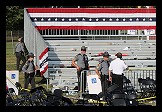 Evidence Fails to Establish Attempted Trump Assass-ination Politically Motivated
Evidence Fails to Establish Attempted Trump Assass-ination Politically Motivated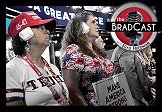 Former MAGA 'Cultist' on the State of the Race for 'MAGA Americans': 'BradCast' 7/23/24
Former MAGA 'Cultist' on the State of the Race for 'MAGA Americans': 'BradCast' 7/23/24  'Green News Report' 7/23/24
'Green News Report' 7/23/24
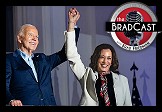 Biden Out, Endorses
Biden Out, Endorses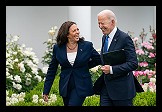 BIDEN DROPS REELECTION BID
BIDEN DROPS REELECTION BID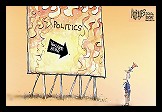 Sunday 'You Are Here' Toons
Sunday 'You Are Here' Toons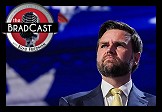 What J.D. Vance Forgot to Tell You (and Lied About) at the RNC: 'BradCast' 7/18/24
What J.D. Vance Forgot to Tell You (and Lied About) at the RNC: 'BradCast' 7/18/24 'Green News Report' 7/18/24
'Green News Report' 7/18/24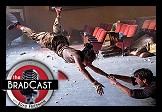 Holding on for Dear Life Amid the Political Whirlwind: 'BradCast' 7/17/24
Holding on for Dear Life Amid the Political Whirlwind: 'BradCast' 7/17/24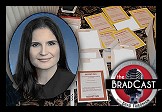 Cannon's Corruption: 'BradCast' 7/16/24
Cannon's Corruption: 'BradCast' 7/16/24 'Green News Report' 7/16/24
'Green News Report' 7/16/24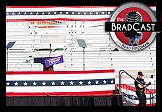 Amid the Assassination Attempt Aftermath:
Amid the Assassination Attempt Aftermath: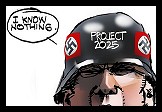
 Meanwhile... : 'BradCast' 7/11/24
Meanwhile... : 'BradCast' 7/11/24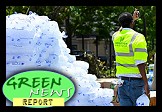 'Green News Report' 7/11/24
'Green News Report' 7/11/24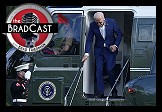 Paging 'Johnny Unbeatable'! Dems (Actually!) in Disarray!: 'BradCast' 7/10/24
Paging 'Johnny Unbeatable'! Dems (Actually!) in Disarray!: 'BradCast' 7/10/24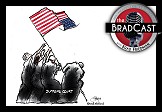 SCOTUS Immunity Ruling 'As Bad as it Sounds', And Worse: 'BradCast' 7/9/24
SCOTUS Immunity Ruling 'As Bad as it Sounds', And Worse: 'BradCast' 7/9/24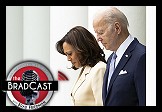 So, What Now?: 'BradCast' 7/8/24
So, What Now?: 'BradCast' 7/8/24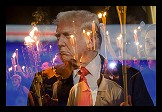 Debunking MAGA Cult Xenophobia
Debunking MAGA Cult Xenophobia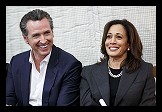 A Friendly Suggestion: Harris-Newsom 2024
A Friendly Suggestion: Harris-Newsom 2024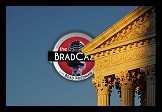 Prosecutor: SCOTUS Corruption Ruling Less Corrupt Than Appears: 'BradCast' 6/27/24
Prosecutor: SCOTUS Corruption Ruling Less Corrupt Than Appears: 'BradCast' 6/27/24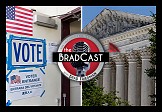 Good News and Bad: At the Polls and From the Corrupted Court: 'BradCast' 6/26/24
Good News and Bad: At the Polls and From the Corrupted Court: 'BradCast' 6/26/24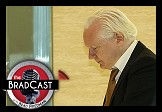 'Emptywheel' on Assange Hacking, Plea Deal: 'BradCast' 6/25/24
'Emptywheel' on Assange Hacking, Plea Deal: 'BradCast' 6/25/24
 VA GOP VOTER REG FRAUDSTER OFF HOOK
VA GOP VOTER REG FRAUDSTER OFF HOOK Criminal GOP Voter Registration Fraud Probe Expanding in VA
Criminal GOP Voter Registration Fraud Probe Expanding in VA DOJ PROBE SOUGHT AFTER VA ARREST
DOJ PROBE SOUGHT AFTER VA ARREST Arrest in VA: GOP Voter Reg Scandal Widens
Arrest in VA: GOP Voter Reg Scandal Widens ALL TOGETHER: ROVE, SPROUL, KOCHS, RNC
ALL TOGETHER: ROVE, SPROUL, KOCHS, RNC LATimes: RNC's 'Fired' Sproul Working for Repubs in 'as Many as 30 States'
LATimes: RNC's 'Fired' Sproul Working for Repubs in 'as Many as 30 States' 'Fired' Sproul Group 'Cloned', Still Working for Republicans in At Least 10 States
'Fired' Sproul Group 'Cloned', Still Working for Republicans in At Least 10 States FINALLY: FOX ON GOP REG FRAUD SCANDAL
FINALLY: FOX ON GOP REG FRAUD SCANDAL COLORADO FOLLOWS FLORIDA WITH GOP CRIMINAL INVESTIGATION
COLORADO FOLLOWS FLORIDA WITH GOP CRIMINAL INVESTIGATION CRIMINAL PROBE LAUNCHED INTO GOP VOTER REGISTRATION FRAUD SCANDAL IN FL
CRIMINAL PROBE LAUNCHED INTO GOP VOTER REGISTRATION FRAUD SCANDAL IN FL Brad Breaks PA Photo ID & GOP Registration Fraud Scandal News on Hartmann TV
Brad Breaks PA Photo ID & GOP Registration Fraud Scandal News on Hartmann TV  CAUGHT ON TAPE: COORDINATED NATIONWIDE GOP VOTER REG SCAM
CAUGHT ON TAPE: COORDINATED NATIONWIDE GOP VOTER REG SCAM CRIMINAL ELECTION FRAUD COMPLAINT FILED AGAINST GOP 'FRAUD' FIRM
CRIMINAL ELECTION FRAUD COMPLAINT FILED AGAINST GOP 'FRAUD' FIRM RICK SCOTT GETS ROLLED IN GOP REGISTRATION FRAUD SCANDAL
RICK SCOTT GETS ROLLED IN GOP REGISTRATION FRAUD SCANDAL VIDEO: Brad Breaks GOP Reg Fraud Scandal on Hartmann TV
VIDEO: Brad Breaks GOP Reg Fraud Scandal on Hartmann TV RNC FIRES NATIONAL VOTER REGISTRATION FIRM FOR FRAUD
RNC FIRES NATIONAL VOTER REGISTRATION FIRM FOR FRAUD EXCLUSIVE: Intvw w/ FL Official Who First Discovered GOP Reg Fraud
EXCLUSIVE: Intvw w/ FL Official Who First Discovered GOP Reg Fraud GOP REGISTRATION FRAUD FOUND IN FL
GOP REGISTRATION FRAUD FOUND IN FL


































